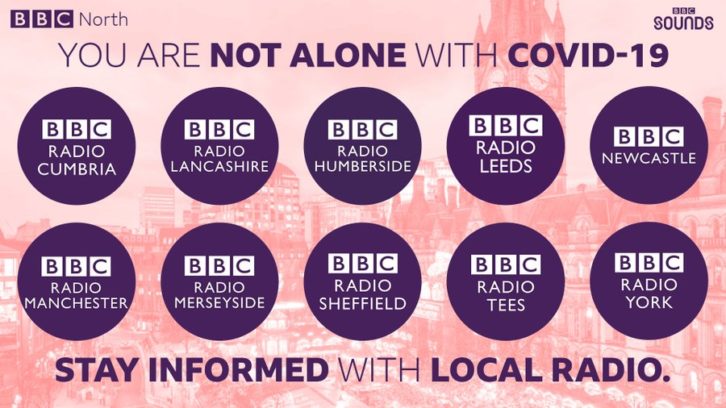
The BBC’s 39 local radio stations across England are the latest to feel the fall out from the January 2022 decision to freeze the license fee that makes up about 74% of the BBC’s budget.
As with its recently announced cuts to the BBC World Service, the broadcaster’s leadership is positioning the changes as part of an organization-wide effort to create “a modern, digital-led organization offering even greater value to all audiences.”
According to the BBC, the local radio cuts will help reprioritize about £19 million ($21.9 million) in funding to support a new multimedia news operation for England. This will bring together local online, radio, and television resources, as well as support 11 investigative reporting teams focused on local news and analysis.
The new multimedia operation is expected to create 131 additional roles within the BBC; however, the BBC Local Radio program reductions will amount to 139 fewer roles within audio teams. An additional 40 positions will be eliminated with the previously announced closure of the “We Are England” documentary series.
[Related: “Lords Report Rejects End for BBC License Fee”]
“The plans will help us connect with more people in more communities right across England, striking a better balance between our broadcast and online services and ensuring we remain a cornerstone of local life for generations to come,” stated Rhodri Talfan Davies, director of BBC Nations.
While supportive of the move to multimedia operations, Bectu, the media workers union that represents the largest share of BBC’s unionized workforce, noted that the local radio cuts will have “direct consequences on Bectu operational staff based there as local redeployment opportunities will be minimal.”
Philippa Childs, the head of Bectu, noted how these cuts are the result of the earlier governmental decision to freeze the license fee. “Just last month we saw how important public service broadcasting and local radio are to our democracy via Prime Ministerial interviews. This disappointing move reinforces the need for a license fee that keeps pace with inflation and enables long-term planning and stability,” she stated, referring to the grilling Prime Minister Liz Truss received from local radio stations in late September after her first mini-budget was released. Truss resigned three weeks later.
During Question Time on Nov. 1, British Secretary of State for Digital, Culture, Media and Sport Julia Lopez answered a series of questions from members of Parliament about the closure. While stressing the operational and editorial independence of the BBC, Lopez said “The government is disappointed the BBC is planning such extensive cuts to its local radio output,” while also assuring members she would meet with BBC leaders to discuss the plan and its impact on listeners.
However, Labor MP Stephanie Peacock took the Tory government to task for creating instability at the broadcaster. “In an already challenging economic environment, the government’s looming threat of scrapping the license fee while providing no alternative model has done nothing but further destabilize the position of the BBC. The consequence of this instability is now showing.”
Under the new plan, BBC Local Radio stations will air local programming from 6 a.m. to 2 p.m. on weekdays, a reduction of four hours of local programming for most of the stations. Local Radio stations will continue to carry live sports programming and local news bulletins, but after 2 p.m. on weekdays the stations will carry one of 18 afternoon programs that local stations will contribute to.
From 6 to 10 p.m. on weekdays, as well as on Saturdays and Sunday mornings, BBC Local Radio will carry ten regional programs aligned with the BBC English Regions for local television. Overnight and on Sunday afternoons and evenings, a national “all-England” program will air.
Because of how local radio is handled across the four nations of the United Kingdom, the changes do not impact stations in Wales, Scotland, or Northern Ireland.







